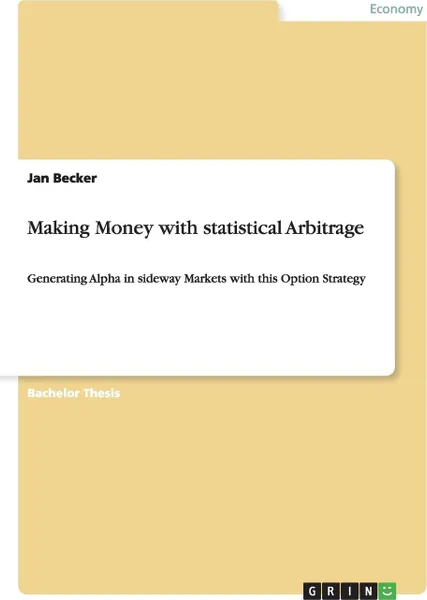Making Money with statistical Arbitrage 12+
📓 Bachelor Thesis from the year 2010 in the subject Business economics - Investment and Finance, University of Frankfurt (Main), language: English, abstract: In the following bachelor's thesis I am going to present a short survey of the hedge fund industry, its regulation and the existent hedge fund strategies. Especially statistical arbitrage is explained in further detail and major performance measurement ratios are presented. In the second part, I am going to introduce a semi-variance model for statistical arbitrage. The model is compared to the standard Garch model, which is so often used in daily option trading, derivate pricing and risk management. Because investment returns are not equally distributed over time, sources for statistical arbitrage occur. The semi-variance model takes skewness into account and provides higher returns at lower volatility than the Garch model. The concept is aimed to be a synopsis of mean reversion and chart pattern detection. The computer model is generated with respect to Brownian motion and technical analysis and provide significant returns to the investment. As market efficiency hypothesis states the impossibility of arbitrage opportunities over the long run, on the other hand market anomalies significantly outstand. Connecting both elements creates a profitable trading system. The combination of both approaches delivers a sensible hedge fund concept. The out-ofsample backtest verifies out-performance and implies the need for further research in the area of higher moment CAPM and additional market timing strategies as sources of statistical arbitrage.
Мнения
